How Tech and AI Are Redefining Live Entertainment at Venues - The Sphere and Cosm
Technology and AI are revolutionizing live music events, creating more interactive and immersive experiences. Venues like The Sphere and Cosm are using AI to enhance sound, visuals, and audience engagement in real-time in ways haven’t seen generally, such as:
Real-Time Adjustments: AI analyzes audience reactions to sync music, lighting, and visuals dynamically.
Improved Sound Quality: AI-powered tools optimize acoustics for crystal-clear audio across the venue.
Personalized Experiences: AI tailors performances to audience preferences without losing the collective energy.
Immersive Technologies: VR, AR, and 8K LED domes bring new dimensions to concerts.
Quick Comparison: The Sphere vs. Cosm
AI is not just enhancing concerts - it’s redefining them. From personalized interactions to cutting-edge visuals, the future of live entertainment is here (or at least coming) …
Las Vegas $2.3BN Mega Sphere
AI Technologies in Concert Settings
AI is changing the way we experience live music, introducing advanced tools that make concerts more interactive, responsive, and tailored to the audience.
Real-Time Visual Effects
Concert venues now use AI to create visuals that adjust instantly to the music and performance. By analyzing the music, performers' movements, and audience energy, AI ensures visuals stay perfectly in sync with the show.
These AI-driven visuals don't just look impressive - they also deepen the connection between the performance and the audience. The same goes for sporting events, which can serve as a quasi-proxy for being in the actual stadium or arena. And it’s only going to get better!
Personalized Audience Engagement
AI is also reshaping how audiences interact with live music. Venues can now create experiences tailored to individual tastes while keeping the collective energy of the crowd intact.
Great examples are Holly Herndon, who incorporates AI-generated vocals into her performances, and Anyma at The Sphere. This shows how technology can enhance human creativity without overshadowing it.
Improved Sound Quality
Visuals and engagement are important, but sound quality is at the heart of any live event, especially music. AI-powered tools are now transforming concert acoustics, ensuring crystal-clear sound no matter where you're seated. By analyzing the venue's acoustics and adjusting sound in real time, technology and AI can help ensure every note is perfectly delivered, even as crowd dynamics change.
For instance, the ABBA Voyage concert residency in London uses AI to maintain flawless sound balance while coordinating with digital avatars. This blend of cutting-edge sound tech and performance artistry offers a glimpse into the future of live music (and events overall).
Immersive Technologies in Concert Venues
VR and AR in Concerts
Virtual reality (VR) and augmented reality (AR) will also eventually reshape how audiences engage with live music as well. Costs will get driven down and the hardware will become more compact, lightweight and seamlessly integrated into daily life. I personally believe the future of VR/AR hinges on hardware miniaturization — once headsets become as sleek and wearable as the glasses I wear every day, adoption will skyrocket. These technologies create immersive experiences that respond to audience reactions in real time, enhancing interactivity and making events more dynamic. They also aim to ensure inclusivity, allowing more people to enjoy these advanced features.
However, incorporating VR and AR into concert venues isn't just about adding flashy tech. Venues need the right infrastructure and must prioritize accessibility to ensure that everyone can take part in these experiences without feeling excluded.
Interactive Concert Environments
Concert venues like The Sphere and Cosm have raised the bar for interactive environments, offering performances that go beyond traditional formats. The Sphere, for instance, uses an 8K LED dome and a HOLOPLOT audio system to deliver synchronized visuals and sound, creating an experience that's unlike anything else.
"Creating this experience required us to go far beyond existing audio technology, and in HOLOPLOT we found a partner at the forefront of innovation to help achieve our vision and truly transform what is possible with audio." - David Dibble, CEO, MSG Ventures [4]
These advancements are redefining how concerts are experienced, setting the stage for what’s to come.
Future of Concert Venues
The future of concert venues will eventually be about seamlessly merging the digital and physical worlds. Cosm's "Orbital" demonstration, which simulates the view of Earth from lower orbit [1], is a glimpse into how AI is influencing venue design and the audience experience.
Key trends shaping this evolution include:
Real-Time Audience Feedback: Systems that adapt live performances based on audience reactions.
AI-Powered Personalization: Tailored content that still maintains the collective energy of a live event.
Unified Tech Integration: Blending AI, VR/AR, blockchain technology, etc. for seamless experiences.
Accessibility: Making sure technology enhances the emotional connection of live performances rather than overshadowing it.
Comparing the Sphere and Cosm
Feature and Technology Comparison
The Sphere and Cosm take different paths in delivering AI-enhanced concert experiences, each offering distinct technological setups and ways of engaging audiences. Both venues rely on advanced AI, but their goals and methods set them apart.
The Sphere stands out with its massive 366-foot structure, designed to deliver breathtaking visuals and soundscapes for live music events (and movies). It uses AI to create real-time visual effects and immersive audio experiences on a scale rarely seen. On the other hand, Cosm opts for a more intimate setting with its 87-foot diameter 8K LED dome. While concerts are part of its offerings, Cosm also hosts sports events, art showcases, and more, focusing on audience interaction and adaptable content.
Both venues use tech and AI to enhance their sound and visuals, but their focus differs. The Sphere leans into large-scale, AI-driven effects, while Cosm prioritizes personalized, audience-responsive interactions.
Together, they highlight the diverse possibilities of AI in entertainment, which will spark conversations about how this technology will shape the future of live experiences even further.
AI in Concerts: Future and Ethics
Expert Views on AI in Concerts
The short soundbite here is to highlight the need to balance cutting-edge technology with maintaining the core essence of live performances / events. Venues like the Sphere and Cosm are leading examples of how tech + AI can complement, rather than overshadow, human creativity. Artists are exploring AI to push creative boundaries while ensuring their work stays true to their vision. However, while these advancements open new doors, they also bring up ethical questions that can't be ignored.
Ethical Issues in AI-Driven Concerts
The use of AI in concerts introduces several ethical challenges that need careful consideration (among others):
Transparency is key. Venues should clearly communicate how they use AI, especially when it involves data collection. Offering easy opt-out options and prioritizing privacy safeguards will help build trust. It's equally important to ensure the tech and AI tools enhance performances without compromising artistic expression, artist rights, or even audience rights.
Conclusion and Key Points
AI is going to change the live experience in big ways. It's currently improving visuals, fine-tuning sound, and allowing for personalized audience interactions in venues. These advancements make performances more immersive and responsive, offering a whole new way for audiences to connect.
Technology done right will bridge the gap between talent and fans, reshaping what can at times feel like a one-sided, parasocial relationship.
These tools are giving artists fresh ways to explore their creativity, pointing to a future where technology works hand-in-hand with human artistry.
Hybrid concerts will breaking down physical barriers, allowing venues to reach audiences far beyond their walls. This isn't just about improving concerts - it's about rethinking them entirely.
Above all else, despite the tech-driven changes, the heart of live performances and events - the human connection - will always remain intact. As venues push the limits of what's possible, they're crafting experiences that combine cutting-edge innovation with the irreplaceable charm of live entertainment, ensuring every show feels one-of-a-kind.
Eventually, the future of live events isn’t just bigger—it’s smarter, more immersive, and truly unforgettable.


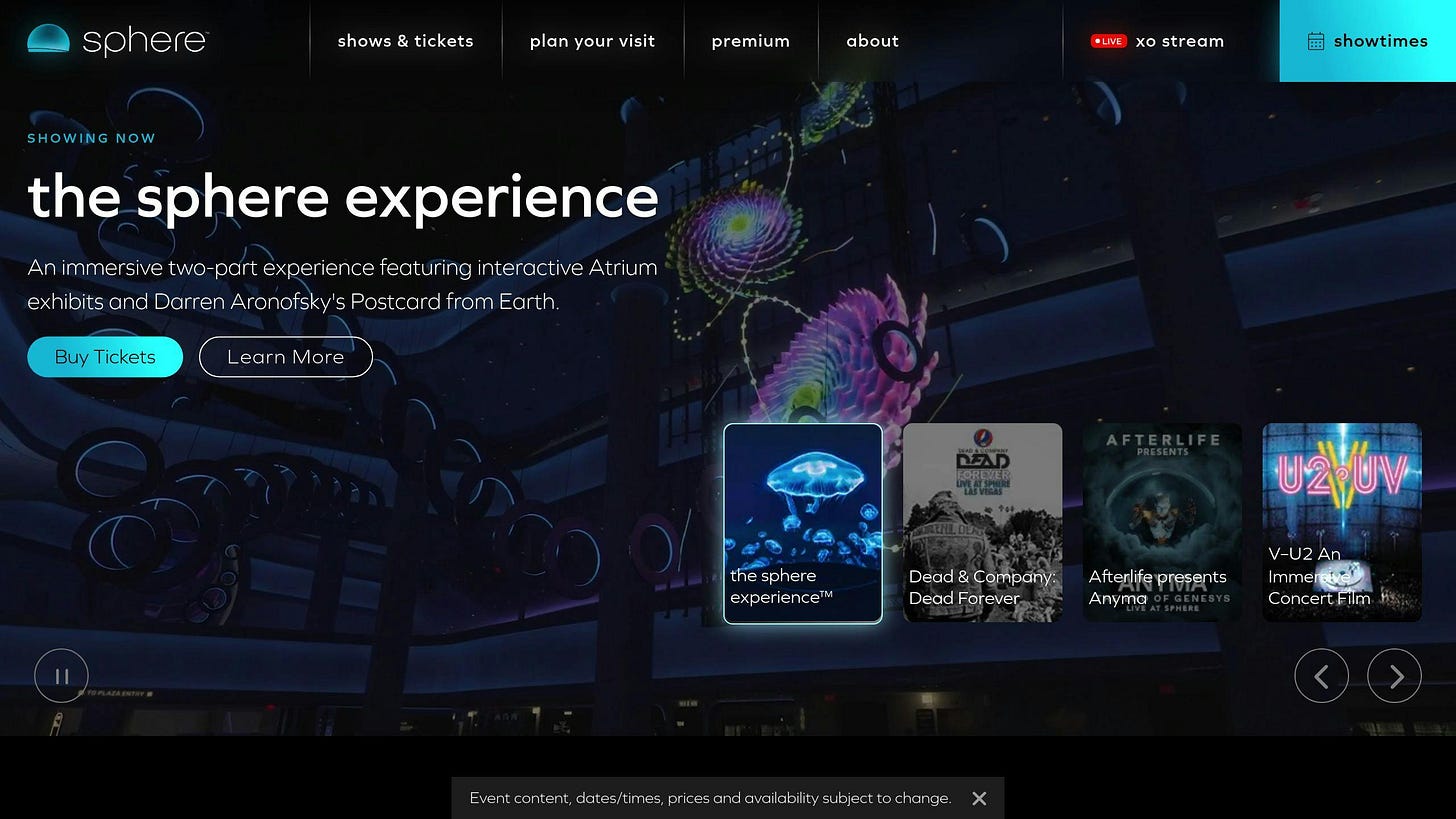
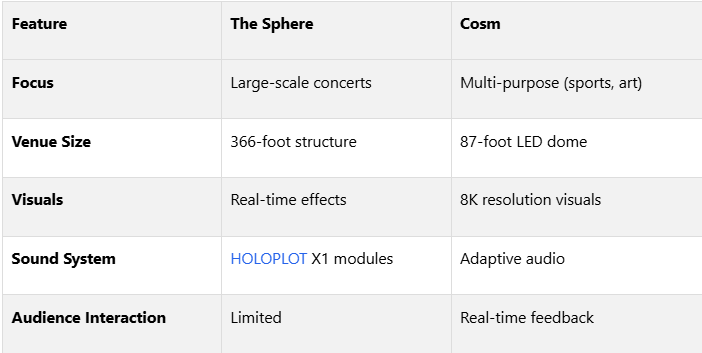

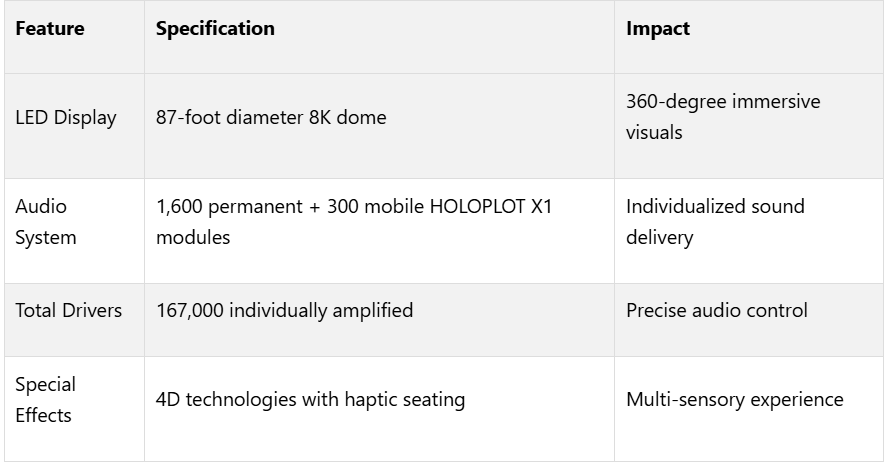
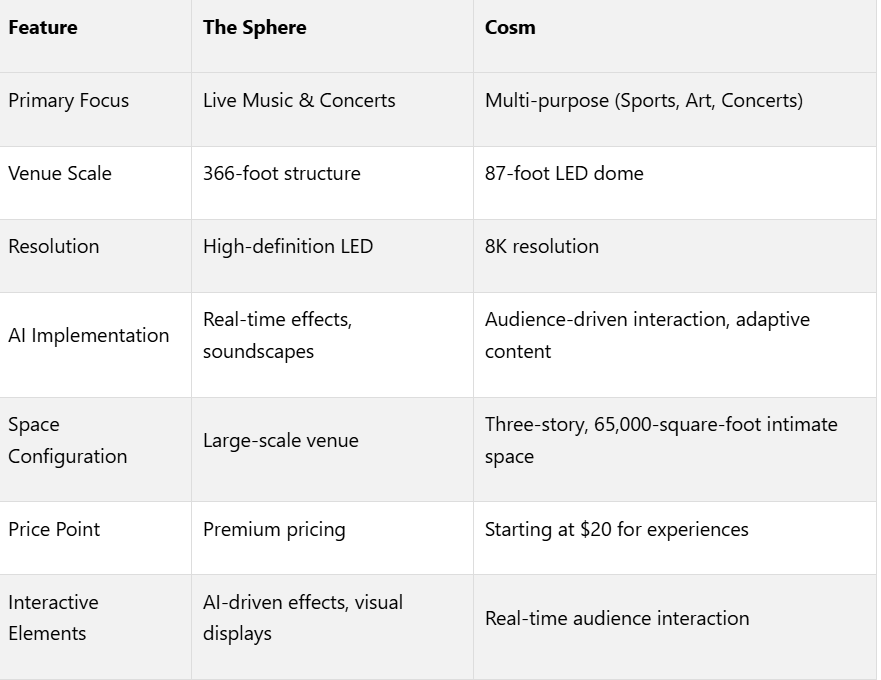
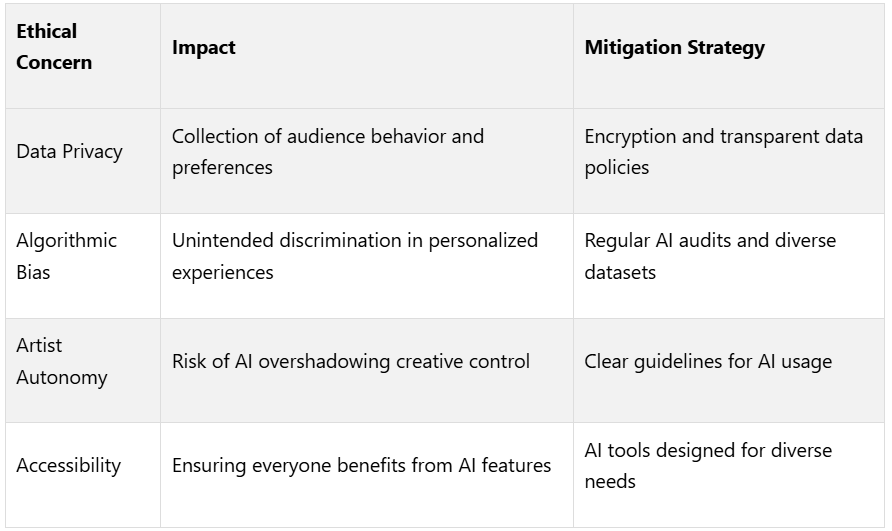
This is a fascinating look at how tech and AI are transforming live experiences. From entertainment to personal interactions, the possibilities are endless. It’s exciting to think about how these advancements will continue to shape our world.